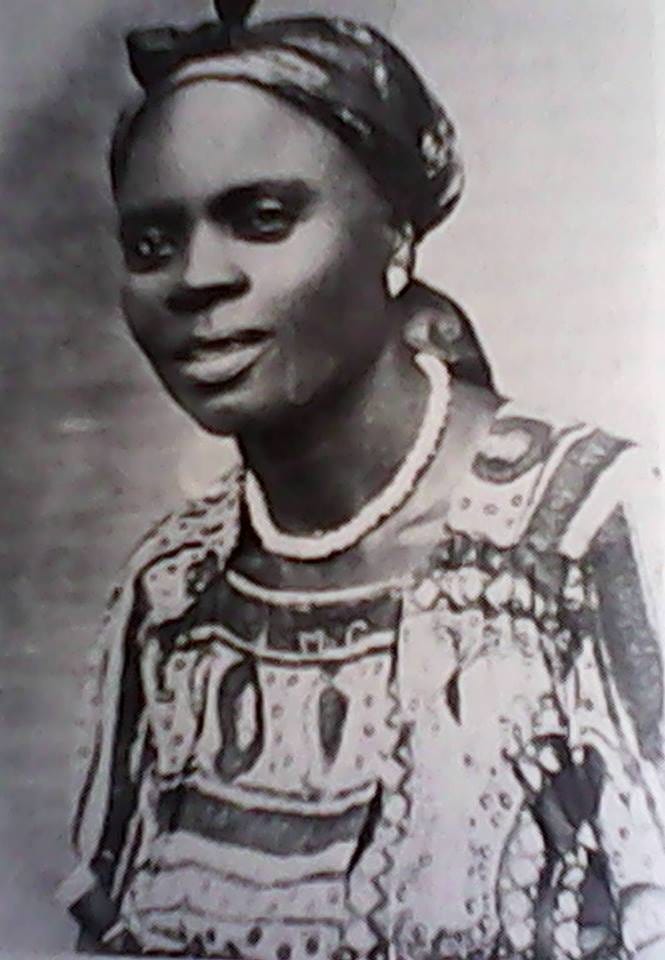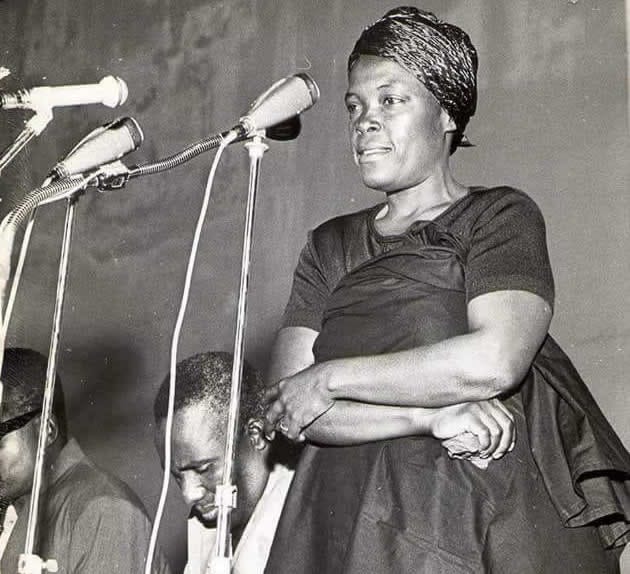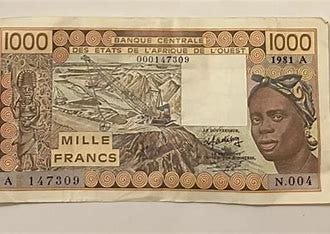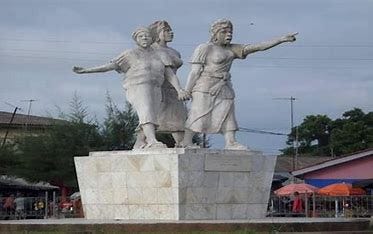Marie Koré: An emblematic figure in the struggle for Ivorian independence
by Edwige Dro and La Nich
The history of Côte d'Ivoire is full of outstanding female political figures, and among them, Marie Sery Koré occupies a key place. A woman of character and a committed activist, she established herself as one of the great figures in the struggle for the country's independence. She is a “woman of admirable bravery and intelligence, lacking only education,” the historian Henriette Diabaté explains in her book, La Marche des femmes sur Grand-Bassam (The Women's March on Grand-Bassam – not yet translated in English), published by Nouvelles Éditions Africaines in 1975.
An ordinary woman who became a leader
Born in the village of Gossa, in Daloa – some say she was born in 1910, others in 1912 – Marie Koré, née Zogbo Céza Galo Marie, grew up in a modest home. Like many women of her time, she did not have access to formal education. However, she developed a sharp mind, a strong ability to mobilize and an exceptional talent for political organization.
Her political engagement was shaped within the Democratic Party of Côte d'Ivoire (PDCI-RDA), a movement founded to demand an end to French colonial rule. She led the party's women's section in Treichville. Active in the RDA Women's Movement, she established herself as an influential figure in the struggle for political emancipation.
The 1949 marches: a historic turning point
The struggle of Marie Koré and the women of the PDCI reached its climax in 1949, in a context of intense colonial repression. It was following an adjanou – a traditional song of protest – that Marcelline Sibo, a palm wine seller and president of the Agni women, was arrested in the early hours of August 3rd for causing disturbance. This event provoked a swift reaction from the women who, without consulting the governing bodies of the PDCI, went to the court in Grand-Bassam the following morning and caused such a commotion that their comrade was released.
It was this victory that mobilized them to organize, in a context of public motherhood, the demand for the release of their husbands and brothers imprisoned since February 6, 1949 without trial.
Anne-Marie Raggi, President of the PDCI women’s section in Grand Bassam and one of the leaders of the march
On December 23, 1949, Marie Koré and several hundred Ivorian women went to Grand Bassam from Abidjan in groups of two or three to elude the vigilance of the colonial administration. Having noted the large number of women in Grand-Bassam, the administration had initially demanded that no car should transport more than two women. An hour later, at 1 pm, the decision was made that no car or other means of transport should take any woman going to Grand-Bassam.
“We weren't born with cars. We're used to walking. So, it costs us nothing to make the journey on foot,” Marie Koré and Lorougnon Zikaï, who lead the group of Bété women, retorted.
Their message is clear: they will not back down until their husbands, brothers and sons are released. In the early hours of December 24th, they decided to storm the prison, but the colonial administration reacted violently. The demonstrators were repressed, doused with water from hoses dipped directly into the sea, trampled by horses, beaten and dispersed. Marie Koré hurled insults, encouraging her comrades.
“My Bété, Baoulé, Dioula and sisters from everywhere, do not be afraid! Just because they throw water mixed with sand at us does not mean we should be discouraged, because a person who wants to come to the aid of her husband, her brother, her son should not stand down because of so little.”
She is arrested and thrown into prison with her daughter, Denise, whom she was carrying on her back, and sentenced to two months in prison.
A legacy not to be forgotten
Marie Koré died on February 12, 1953, at Treichville General Hospital, where she had gone to be treated for a purulent inflammation on her finger. Her face has appeared on a banknote and a postal stamp in Côte d'Ivoire. A statue in memory of the Women's March on Grand-Bassam depicts three women. One of them, carrying a child on her back, could be Marie Koré.
Her struggle and that of all the women who marched on Grand-Bassam and led the strike of Western products in 1950, helped to accelerate the independence process, although her role, like that of many women in African liberation movements, has often been underestimated.
Want to go further? We provide you with some resources
Henriette Diabaté, La Marche des femmes sur Grand-Bassam, Les Nouvelles Éditions Africaines, 1975. (French)
Militant Mothers: Gender and the Politics of Anticolonial Action in Côte d’Ivoire – Article – Elizabeth Jacob (English)
This article was written in collaboration with La Nich





